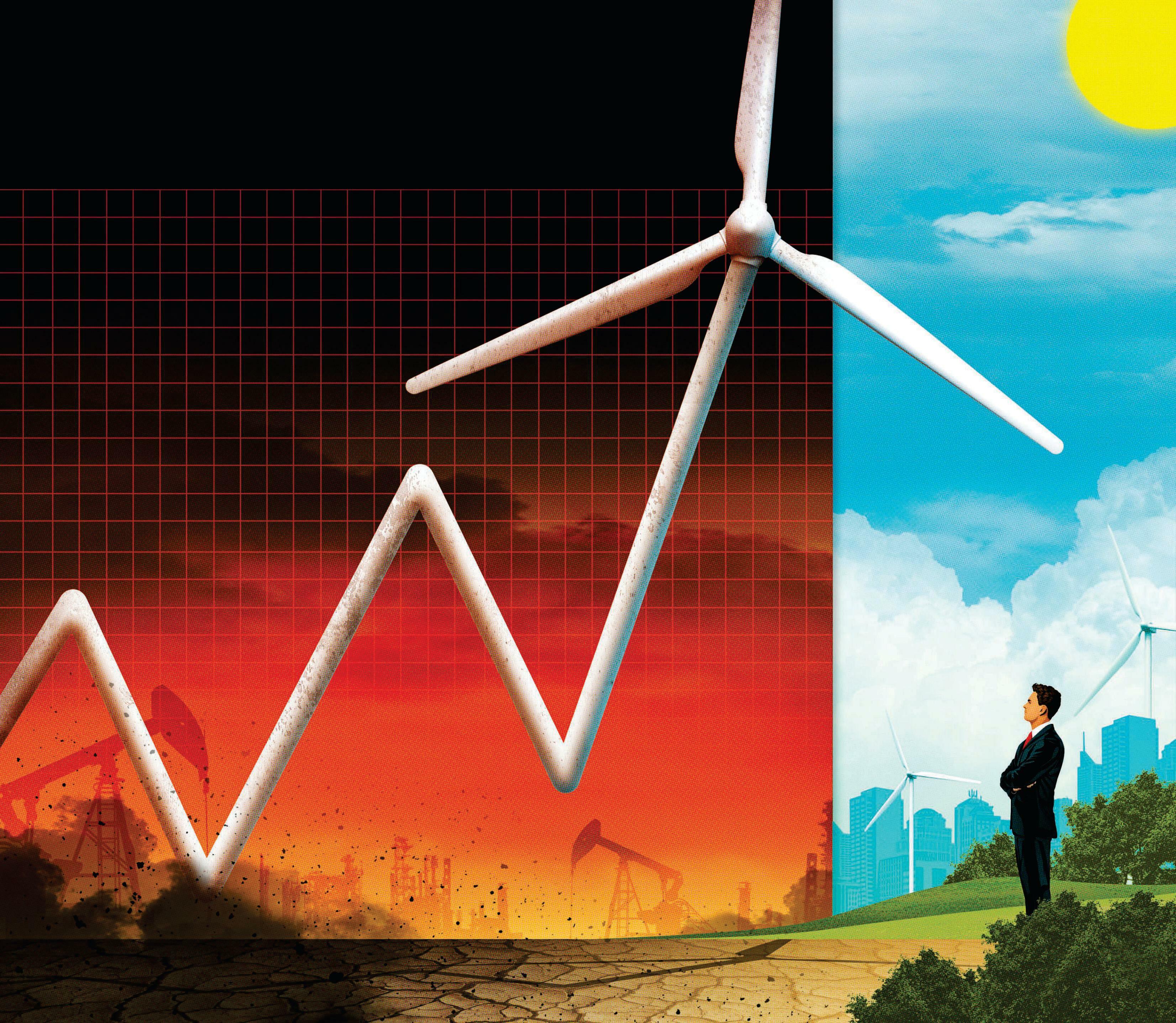कोशिश गोल्ड - मुक्त
Shifting Winds
TIME Magazine
|October 13, 2025
HOW MAJOR BANKS LIKE JPMORGAN ARE RETHINKING THEIR CLIMATE STRATEGIES

THIS SPRING, AS GLOBAL MARKETS GYRATED, SOME OF THE world’s most influential investors and executives sat in a Scottsdale, Ariz., conference room engaged in deep discussion. But rather than President Donald Trump's tariffs, the 120 attendees were focused on the future of energy, climate, and sustainability. Across the conference ballroom were individuals representing a combined $4.3 trillion in market capitalization and $4.2 trillion in assets under management. At my table sat JPMorgan Chase & Co. CEO Jamie Dimon, Microsoft founder turned philanthropist Bill Gates, and Jim Farley, the CEO of the Ford Motor Co. Elsewhere in the room, I spotted an oil-and-gas CEO, a prominent clean-tech innovator, and some of the world’s biggest asset managers. For all the financial might, there was hardly any hype or grandeur. There was little indication of the host or the purpose of the gathering convened at the Four Seasons Resort. A logo on the wall simply read SCOTTSDALE ACTION FORUM. But at the center of the room Dimon, the conference host, sat watching intently.
To many casual climate observers, it may look as if the world’s biggest companies in the financial sector and beyond are shunning climate work because the political zeitgeist has made it inconvenient. But the truth is far more complicated. Global markets and regulatory pressures keep the issue on the corporate radar. And out of the public eye, executives continue to search for a path forward. It’s just unlikely that they will settle on the path everyone envisioned five years ago.
“We have an issue; we should face it,” Dimon told the crowd about the world’s growing carbon emissions. But at the same time, he said, the U.S. needs a “more rational conversation” than how the climate dialogue is often framed.
यह कहानी TIME Magazine के October 13, 2025 संस्करण से ली गई है।
हजारों चुनिंदा प्रीमियम कहानियों और 10,000 से अधिक पत्रिकाओं और समाचार पत्रों तक पहुंचने के लिए मैगज़्टर गोल्ड की सदस्यता लें।
क्या आप पहले से ही ग्राहक हैं? साइन इन करें
Listen
Translate
Change font size

